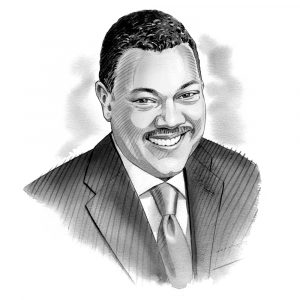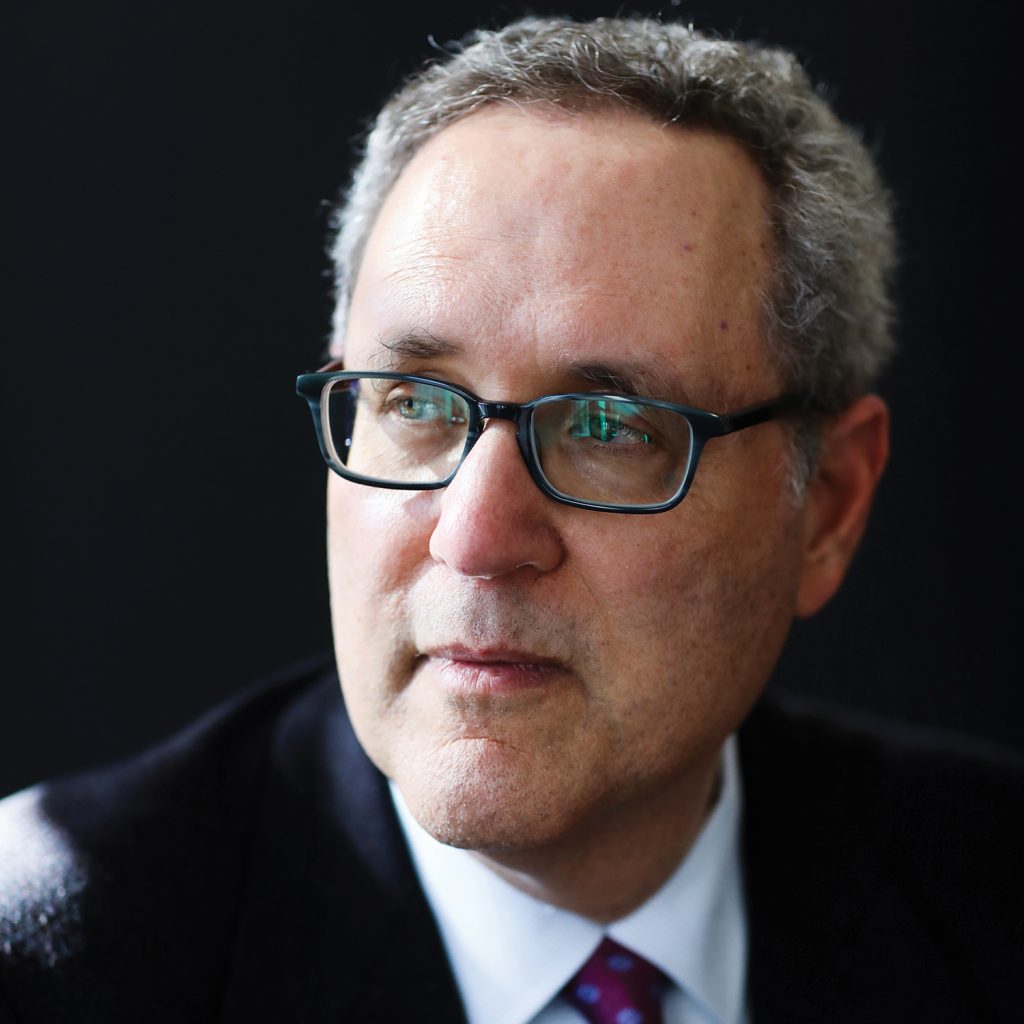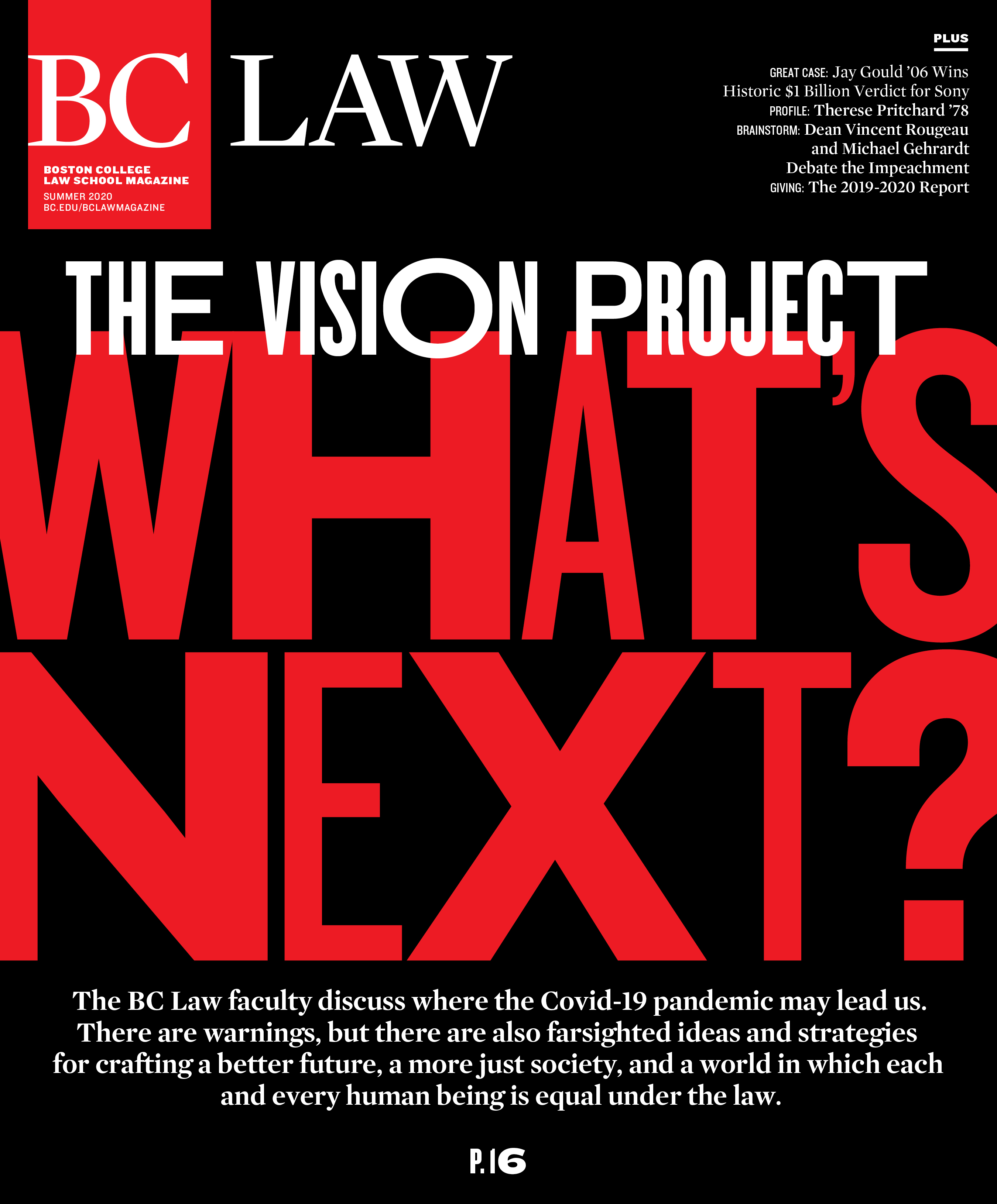What exactly is impeachment and how did what occurred with Trump fit into its constitutional role? With only three impeachments in our country’s history, Michael J. Gerhardt, the University of North Carolina at Chapel Hill Burton Paige Distinguished Professor of Jurisprudence, is perhaps the leading expert, having authored six books on the legislative process. In February, when he lectured at BC Law and spoke with Dean Vincent Rougeau, Gerhardt also brought a personal perspective, having testified at the impeachments of Presidents Clinton and Trump.

MG: The perception of impeachment and the practice of impeachment have both changed over time. Look at what happened in Watergate: Congress and a special prosecutor identified misconduct that President Nixon had been engaged in. The committee approved three articles of impeachment against him, and then he resigned. People think of that as an example of a system working.
Fast forward to today. I don’t think we can look at [President Trump’s impeachment] and come to the same conclusion and without seeing that the Constitution itself might be broken.
VR: Your point about the Constitution being broken is really important. Most other democracies have their constitutions go through evolutions and revisions, and sometimes they’re replaced. Obviously, we’ve added amendments, but the basic structure—the way we think about the Constitution—has remained relatively constant.
The Nixon impeachment happened in a different economic and social and cultural context. There was an agreement amongst those who ran the country about how things were supposed to work. And we just don’t have that anymore.
MG: Impeachment is intertwined with culture. You can only do as much in impeachments as the culture allows you to do, or as little as it may allow you to do.
VR: What we’ve seen is this dramatic move over a relatively short period of time—twenty-five years. We’ve seen people who were, during the Clinton impeachment, trying to uphold a moral standard about lying under oath, now supporting lying under oath. Another dramatic example is the way the evangelical Christian community has lined up behind the president.
I don’t think the framers could have imagined the kind of moral space we’re occupying today across the range in leadership. There are lots of ways we could ask ourselves whether or not the Constitution is functioning appropriately for where we are now.
“Impeachment is intertwined with culture. You can only do so much in impeachments that the culture allows you to do, or as little as it may allow you to do.” —Michael J. Gerhardt, Burton Paige Distinguished Professor of Jurisprudence at UNC Chapel Hill
MG: The fact that Nixon was willing to resign tells us a lot about Nixon. In the end, he listened when people said, “You’ve got a choice here. You can either get convicted and thrown out or you can resign.” If that question were posed to President Trump, he would say there’s no way he’d resign. So the forced resignation option to impeachment is not viable. That puts us back in a situation of what systems are viable. We have to confront the limitations of all these options.
VR: This president consistently breaks norms that have existed as far as anyone can remember. The executive has always been trying to increase its power, but he’s behaving in ways that are akin to what you would expect in an authoritarian state. That is frightening, but what is more so are the enablers around him; it takes a group to enable a leader like this. We’re seeing people who are willing to throw away decades of government service to serve as his lawyers and attach themselves to power.
MG: That’s a terrific point. In constitutional law we teach the unitary theory of the executive: the idea that all executive power should be consolidated under the control of the president. I’m not sure it’s ever really been in effect, but this administration and his lawyers are pushing that theory forward and that might be some explanation for the behavior we’re seeing, including attacking the justice department, in part because under this theory they all work for him. There are many problems with the unitary theory of the executive. One is that there are no means for holding the president accountable.
VR: One potential check is the ballot box. But now they’re corrupting the voting process.
We’re hearing more and more about the responsibilities we have as citizens. We probably need to rethink how we educate young people about their responsibilities and maybe go back to some notion of civic education.
MG: The framers, particularly James Madison, talked about the importance of an enlightened citizenry. Citizens who would be interested in education. There’s this idea of civic virtue, that it’s a noble endeavor to be involved with and informed about politics. Many Americans don’t share that, which is unfortunate. Education may be one way to deal with that, but I think it’s cultural. It has to be a lived experience. We have to figure out a way to ensure that people don’t just read about it; they have to be brought up or given experiences where they can really use those ethical rules.



